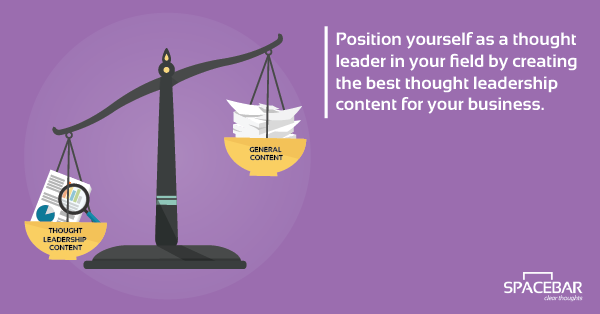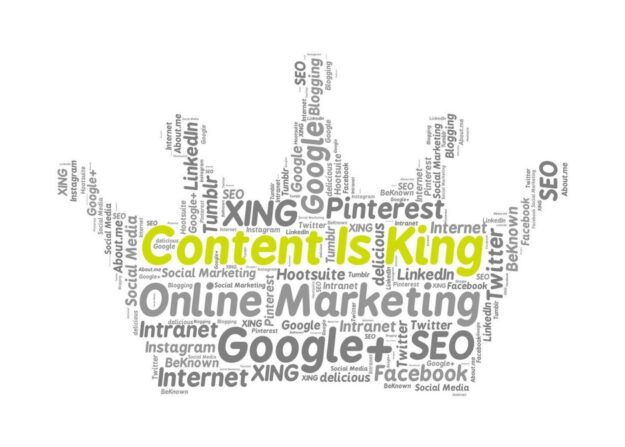I am an engineer by education, a writer by profession, and awesome by birth. I love learning new things and having new experiences, which makes me inclined towards reading and traveling. I also enjoy music, sports, and comedy.
Among all the channels that are available for B2B content marketing, email is probably the most underrated. Many businesses fail to understand the impact a well-executed email marketing strategy can have on lead generation, sales, and profits. If you’re reading this article, chances are you’re not one of them.

Before I started working for a B2B content marketing agency, I thought good writing was all it took to rank articles on Google’s first page of search results.
I used to think SEO and PPC are pointless mumbo-jumbo thrown around by the SEO team to confound their bosses and ensure they aren’t deemed surplus to requirements.
All I knew about SEO (Search Engine Optimization) was that it is the process of making your content rank at the top of Google’s search results. And that PPC (Pay-per-click) is an advertising model where you pay for every time someone clicks on your promoted content or online ads.
When I started my career in B2B content marketing, I found out that they were exactly what I thought they would be — minus the pointless-mumbo jumbo bit.
Turned out, SEO and PPC are, in fact, among the most important aspects of content marketing, secondary only to the quality of the content you put out.
Search engine optimization and pay-per-click advertising are two sides of the same content marketing coin. They are different ways to achieve the same objective — delivering your content to the right target audience.
So, how do they differ?
If you’re here looking for a sure-shot secret formula to get your next Facebook post to the top of every user’s news feed, then I’m sorry to tell you that you’re at the wrong place.
But you know where you’ll find it, though?
N-O-W-H-E-R-E.
That’s because it does not exist.
And you probably already know that if you’ve had any experience using social media for business. While there is no guaranteed way to propel your posts to the pinnacle of Facebook fame, there are a few ways that can increase the likelihood of your posts reaching a large section of your target audience. And it all boils down to something put quite beautifully by my favorite smart person from history, Benjamin Franklin (probably),
Finding good (let alone great) thought leadership content online is — cliched as it may sound — like finding a needle in a haystack. And because such content is so rare, the individuals (think Bill Gates’s blog writing project) and companies (think McKinsey) that do publish such content are held in high regard by everyone. Not only the mainstream audience but even business owners and leaders, the movers and shakers in various industries stop and listen (or read) when such sources publish something new. Many such leaders even base their major business decisions on the ideas and insights they gain from reading good thought leadership content.

Among all the social media platforms out there that are popular in the mainstream, LinkedIn is the one that is least like the others. In fact, calling LinkedIn a social media platform won’t be entirely accurate. LinkedIn is more of a professional networking platform that businesses and professionals use to connect with each other, unlike Facebook or Instagram which are designed to enable friendly, social interactions. This makes it the most ideal platform for running B2B campaigns, while others are more B2C-friendly in terms of marketing.
Since it is so different from the other social media platforms, it stands to reason that the kind of content posted on LinkedIn should also be different. While there are limitless ideas as to what you can post on LinkedIn, there are certain kinds of content that you should steer clear of to make a good professional impression through your business page. Thus, if you’re a B2B company like a social media marketing agency or an accounting firm, pay attention. Following are three types of posts that should never make it to your LinkedIn business page:
I think it was Gandhi who said, “To suck at writing is human; but to admit it, divine.” Or maybe it was Hemingway. Or was it Aristotle? Regardless of who said these words, I think they make sense. And if you’re reading this article, there’s at least a part of you that thinks you suck at writing. That you could do better. And that’s admirable. So, before we begin, here’s a tip of the hat to your self-awareness:
Content marketing can be a highly potent tool for you as a business owner to gain recognition among your target audience and build a following of leads and customers. However, you should realize that it isn’t just a one-time project but a continuous, sustained process. You must ensure that regardless of the type of content you decide to use — social media posts, email newsletters, or blogs — you must frequently and continuously communicate and engage with your audiences. However, unless you happen to run a content marketing services firm yourself, creating and publishing content would only be at the periphery of your core business operations, as most of your time, attention, and resources would be directed towards delivering quality products and services. Thus, like any other non-core function, you must plan and try to automate your content marketing activities. And a content calendar should form the foundation for your content marketing plan.
As humans, we love to think of ourselves as conscious, self-determined beings. We tend to believe that our actions and decisions are solely driven by our will and reasoning. But as research continues to reveal, we may not be fully in control of our decisions. That’s because most of our decisions are influenced —to varying…
If you’re a business owner looking for cost-effective ways to promote your offerings, then using social media for business is an absolute no-brainer. In fact, with millions, if not billions, of people using social media for communication, information, and entertainment, social media marketing is one opportunity you cannot miss out on if you want to…
Consumers are getting smarter. A catchy tagline or a well-made advertisement studded with celebrities doesn’t help in selling products as well as it did before. People want to know more about a product and the brand that’s selling it before they buy. And that, probably, I feel is the reason for the growth of content marketing in India, and the world in general, too. But as the practice and efficacy of content marketing continue to grow, content marketers do face certain challenges, in addition to the perpetual challenge of creating content that is not as pushy as an ad, yet not as dry as Facebook’s privacy policy. Read on to know what those challenges are and how to go about addressing them.









